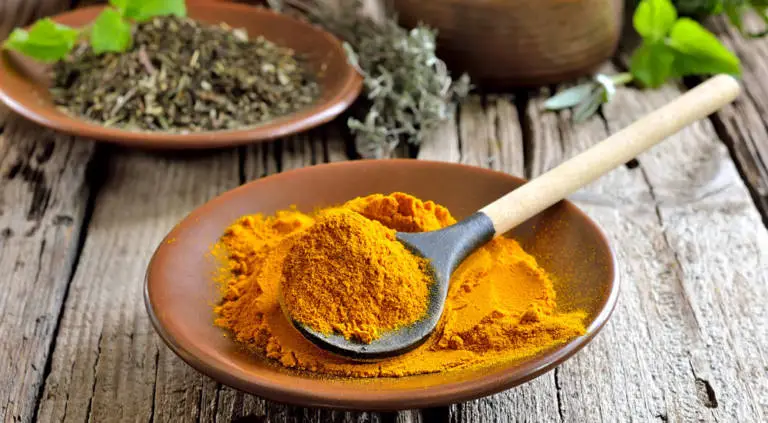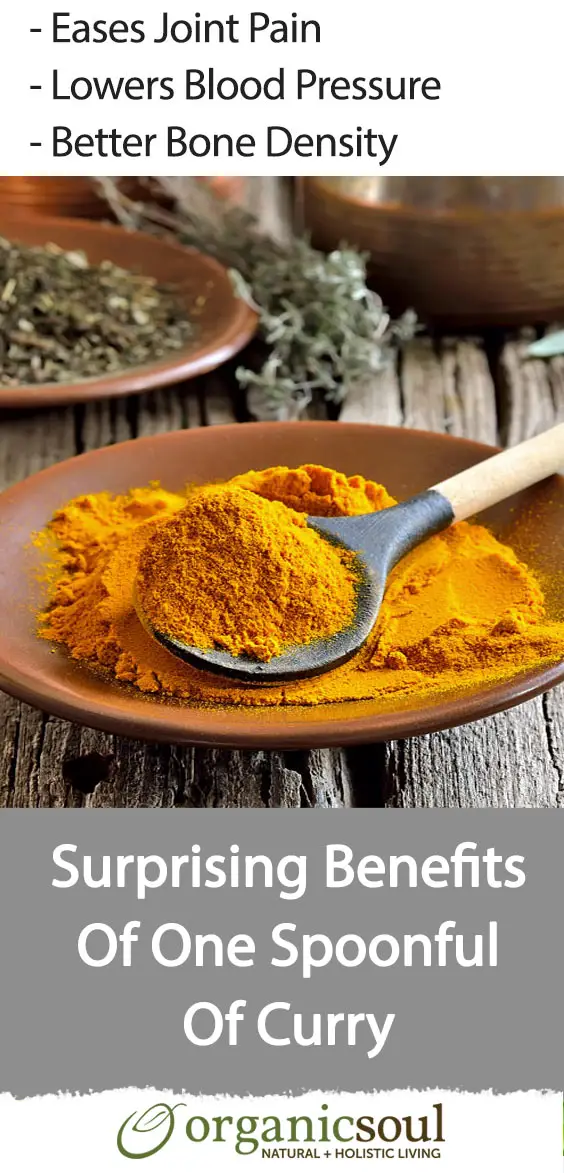
Maybe curry is one of your favorite things to eat, and you like it because of the bold flavor. In addition to its good taste, curry comes with a host of potential health benefits, thanks in large part to turmeric, which is one of its ingredients.
Like Organic Soul on Facebook
Specifically, turmeric is partially responsible for the curry's color. But keep reading to learn some of the health advantages you could get even after eating just a spoonful.
It Helps Prevent Age-Related Brain Issues
Arguably one of the most devastating things that can happen to a person in old age is memory loss. Not only does this health problem cause them to be unable to recall the people, events and milestones that make life special, but the memory issues are often very taxing for family members.
Many serve as caregivers but find the task heartbreaking as their loved ones progressively find it harder to remember who they are.
Luckily, there is evidence to suggest that turmeric helps prevent cognitive decline disorders such as Alzheimer's disease and dementia. Scientists already know plaque and twisted protein fibers in the brain cause these problems.
Turmeric helps break up the proteins that cause the plaque build-up and twisted fibers. In addition, it helps cells regenerate. Those are great reasons to cook with curry no matter what age you are and how concerned you are about potential memory loss.
It Eases Joint Pain
Joint pain is another factor related to getting older. For some of us, it's just something we experience after particularly hard days at work, and for others, it's a fact of daily life. No matter where you fall on the spectrum, eating curry and consuming the turmeric could help make your joints less painful.
Scientists have discovered that curcumin, a chemical compound that's part of turmeric and therefore found in curry, could be just as effective at relieving joint pain as non-steroidal anti-inflammatory drugs.
If you're trying to reduce or eliminate your dependence on over-the-counter or prescription drugs used to alleviate joint stiffness, swelling and pain, consider cooking with curry more often and seeing if that helps.
It Could Help Lower Your Blood Pressure
Turmeric has a blood-thinning effect that could help reduce chronic hypertension, otherwise known as high blood pressure. That's because it's a natural diuretic, meaning it aids your body in getting rid of excessive sodium and fluid. Furthermore, the ingredients found within curry dilate blood vessels, which improve your circulation and means your heart does not have to work as hard.
It Promotes Good Cardiovascular Health
Speaking of your heart, a spoonful of curry could be directly good for it, too. As mentioned above, some of the ingredients in curry, such as curcumin, help widen the blood vessels. If you struggle with high cholesterol, one of the side effects of that common issue is narrowed arteries and compromised circulation.
Eating curry could help avoid those issues because it reduces cholesterol and helps you have a healthier heart. Because curry naturally helps to cut down on the triglycerides that are associated with high blood pressure, it could reduce your risk of related ailments such as heart attacks and strokes.
It Could Help You Treat High Blood Sugar
If you have been diagnosed with diabetes or are worried you're at risk for other problems related to high blood sugar, start cooking with types of curry that have a lot of cinnamon in them.
Cinnamon is a very common spice that's used to top everything, from your morning latte to the cookies baked with friends during the weekend. Because of the blood sugar-lowering effects related to cinnamon, your physician may recommend it when you're trying to maintain a good blood sugar level or bring it down if it's too high.
Also, because cinnamon is so versatile and has a naturally sweet taste, you should notice that it complements almost any curry dish you make.
To really pack a punch, consider sprinkling cinnamon on top of your favorite curry variety, even if it doesn't naturally contain the ingredient. As you'll soon discover, you don't have to be a master chef to successfully cook with cinnamon.
Curry May Be Effective in Battling Depression
We've already explored how curry may help the brain by safeguarding against cognitive decline. However, as a study conducted at Baylor University shows, the food may also aid in managing depression.
As you may have expected, the active ingredient responsible for the good results is curcumin, and researchers say it may help people deal with depression without also experiencing unpleasant side effects.
In the study, which consisted of 60 people, one group received curcumin supplements, another received Prozac and a third group got a mixture of the two. In the end, the test subjects who consumed at least 500 milligrams of curry twice per day felt the same as if they had taken Prozac.
Of course, to potentially get this same effect, you'd have to eat many spoonfuls of curry and not just one, but it's still interesting to consider that curry may benefit your brain in more ways than one.
It May Help Prevent Cancer
Although research is ongoing about the most effective ways to prevent cancer, research indicates that eating curry could be helpful. Specifically, the evidence suggests that when people consume curry, the turmeric and curcumin within it could trigger anti-cancer activity in your saliva.
Admittedly, if you're really interested in this particular health benefit, it's a good idea to take curcumin supplements in addition to a spoonful of curry.
The research conducted so far also has indicated that curry may not merely prevent cancer, but also decrease the size of cancerous growths that are already present in the body. However, if you are a cancer patient, it's always a good idea to ask your doctor before assuming a new dietary regimen.
Curry Could Cause Better Bone Density
As you may know already from personal experience, broken bones could severely disrupt your life and have you laid up for months. Fortunately, though, curry powder and specifically the associated turmeric content may help you avoid problems like osteoporosis and enjoy better bone health overall.
 So far, testing has mainly been restricted to animals, so it's too early to say with certainty what impact curry might have on human bones.
So far, testing has mainly been restricted to animals, so it's too early to say with certainty what impact curry might have on human bones.
However, scientific data has suggested curry and its various ingredients could speed the rate of bone regrowth and cut your age-related bone loss by as much as 50 percent.
Although you shouldn't necessarily trade curry for other healthy, bone-strengthening ingredients like calcium, it's definitely worth adding to your diet.
It should be clear from the information above that you have nothing to lose by adding a spoonful or more of curry to your diet every day. You may experience the benefits outlined above, along with others. Also, unlike some medicines, curry actually tastes good.













